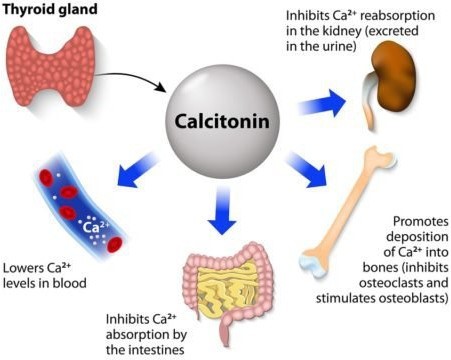Kidney disease can cause hypertension by:
Directly signaling the brain stem to increase blood pressure.
Activating the renin-angiotensin mechanism.
Increasing release (excretion) of sodium and water.
Stimulating the secretion of ANP.
The Correct Answer is B
Kidney disease can cause hypertension by activating the renin-angiotensin mechanism.
This mechanism involves the release of renin from the kidneys, which stimulates the production of angiotensin II, a hormone that constricts blood vessels and increases blood pressure.
Choice A is wrong because kidney disease does not directly signal the brain stem to increase blood pressure.
The brain stem regulates blood pressure through the autonomic nervous system, which responds to various stimuli such as stress, pain, or emotions.
Choice C is wrong because kidney disease does not increase the release (excretion) of sodium and water.
On the contrary, kidney disease can impair the ability of the kidneys to filter out excess sodium and water, which can lead to fluid retention and increased blood pressure.
Choice D is wrong because kidney disease does not stimulate the secretion of ANP.
ANP stands for atrial natriuretic peptide, a hormone that is secreted by the heart when it senses high blood pressure.
ANP causes the kidneys to excrete more sodium and water, which lowers blood pressure.
Nursing Test Bank
Naxlex Comprehensive Predictor Exams
Related Questions
Correct Answer is A
Explanation

Calcitonin is a hormone that protects against excessive blood calcium levels by inhibiting bone turnover and decreasing reabsorption.
It is produced by the thyroid gland and acts on both osteoclasts and osteoblasts.
Choice B is wrong because parathyroid hormone (PTH) stimulates both resorption and formation of bone, and controls the level of calcium in the blood.
Choice C is wrong because thyroxine is a thyroid hormone that is required for skeletal maturation and influences adult bone maintenance but does not directly affect calcium deposition into bone.
Choice D is wrong because insulin is a hormone that regulates both bone formation and bone resorption but does not specifically stimulate calcium deposition into bone.
Correct Answer is B
Explanation
Cardiac output is calculated by multiplying the stroke volume by the heart rate, not by the systolic blood pressure.
Stroke volume is the amount of blood circulated by the heart with each beat. Heart rate is the number of beats per minute.
Systolic blood pressure is the pressure in the arteries when the heart contracts. Choice A is wrong because it confuses systolic blood pressure with heart rate.
Systolic blood pressure is not directly related to cardiac output, although it can be affected by it.
1: Cardiac Output- Definition, Factors Affecting, Cardiac Index - BYJU’S 2: Cardiac Output (Fick’s Formula) - MDCalc 3: Calculating how much blood is pumped by the heart - Cellular respiration and transport - Edexcel - GCSE Biology (Single Science) Revision - Edexcel - BBC Bitesize 4: Cardiac output - Structure and function of the heart - Higher Human Biology Revision - BBC Bitesize : Blood Pressure: What Is Normal? How To Measure Blood Pressure (healthline.com)
Whether you are a student looking to ace your exams or a practicing nurse seeking to enhance your expertise , our nursing education contents will empower you with the confidence and competence to make a difference in the lives of patients and become a respected leader in the healthcare field.
Visit Naxlex, invest in your future and unlock endless possibilities with our unparalleled nursing education contents today
Report Wrong Answer on the Current Question
Do you disagree with the answer? If yes, what is your expected answer? Explain.
Kindly be descriptive with the issue you are facing.
